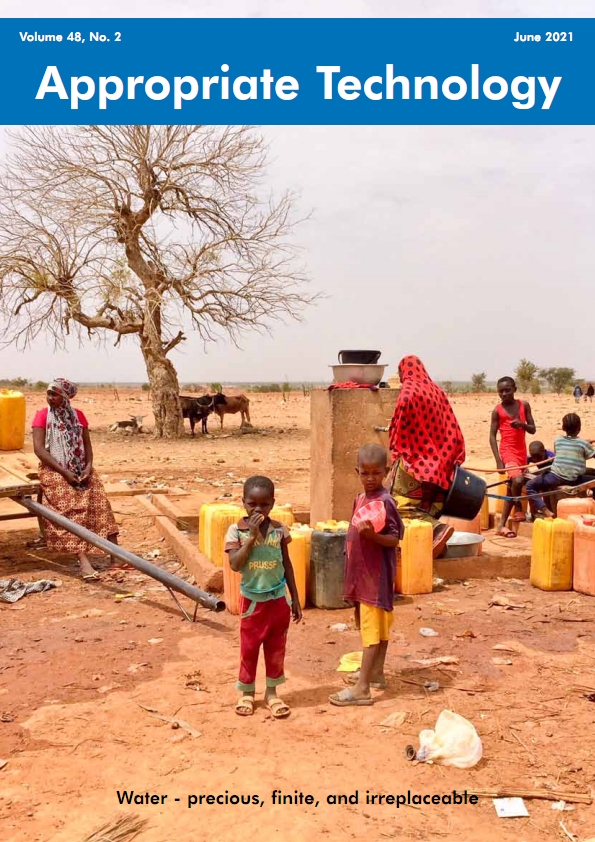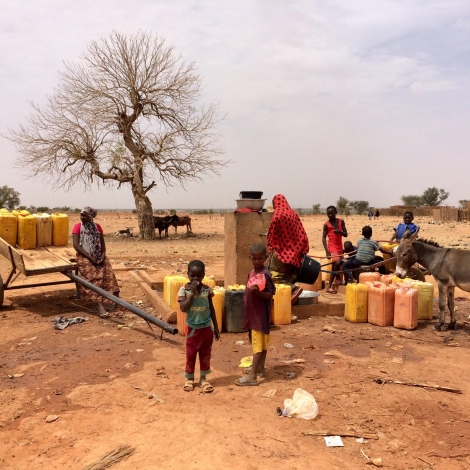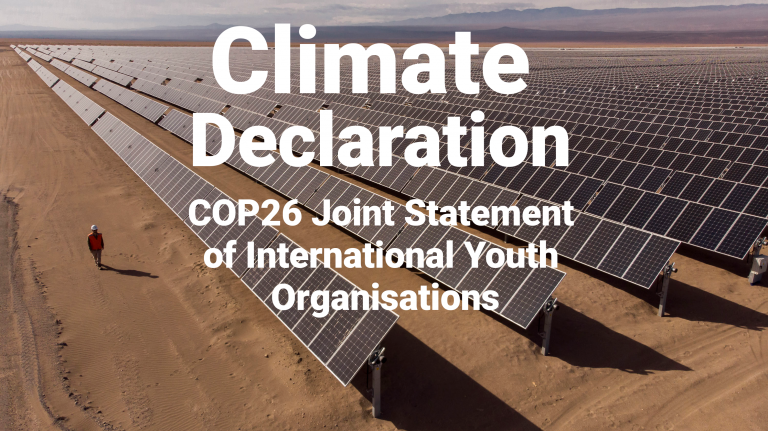
The front cover of the June 2021 issue of Appropriate Technology shows families filling jerry cans at a water point in Margou, a village in southwestern Niger.
Editor’s note: This article is a reprint of a page that appears in print in Appropriate Technology, Vol 48, No. 2. It is published here with permission as a part of our collaboration with the magazine. For more, please see the magazine’s site: www.appropriate-technology.com.
The content of each issue of Appropriate Technology is largely self-selecting, without too much influence from the editor. That may seem an odd opening statement, but it is certainly true of the current publication.
Covid-19 continues to feature in many of our reports, of course, reflecting the devastating effect the virus is still having across the developing world. The current situation in India is deeply distressing, for example, not least because the vaccines, oxygen, and care facilities so many of us take for granted appear to be massively lacking, as the nightly UK news reports reveal.
In such circumstances, it may feel wrong to begin talking about the process of the world’s economic recovery from the effects of Covid-19. That, however, is the focus of a new report from the World Bank Group (WBG) which concludes that recovery from the pandemic’s impact will be at its slowest in developing economies (pages 8 & 9).
Mari Pangestu, World Bank Managing Director for Development Policy and Partnerships, comments that it is those who live and work in developing countries who are often left behind, with little recourse to social safety nets when they lose their jobs or suffer severe income loss. While the WBG report presents an essentially bleak view of the recovery process for many, there is at least a call for policy-makers to address such a prospect now, rather than rejoicing in the fact that the worst appears to be over for developed and prosperous nations.
Water
Our second self-selected topic is water and the need to prepare for our future and the sustained management of this ‘precious, finite, and irreplaceable resource’. Written by regular contributor, Andy Crump, we carry a five-page review of a major new report from the UN, published in March under the title ‘Valuing Water’. It makes a compelling read.
As is often the case when a subject like this works its way into our editorial planning, the knock-on effect of our related research led to the inclusion of a further five articles, all dealing with water usage of one type or another. This reflects our approach of being driven by the real needs of developing countries and demonstrates that water is a massive concern for us all.
COP26
We have also given generous coverage to climate change, in view of the importance of the 26th UN Climate Change Conference of the Parties (COP26) which is due to take place in Glasgow, Scotland, in November this year.
It would be only too easy, of course, for the country leaders who will attend this event to issue their various sound-bites of glorious progress and ambition, boosting their own reputations in the process. Hopefully, Appropriate Technology can help inject a little reality into the debate by shining a light on the actual impact of climate change on real people, especially those in developing countries where there is little or no room for maneuvre.
I am particularly pleased, therefore, that our ‘Last Word’ feature (pages 62-65) tackles climate change and migration in a direct and forceful manner. Written by Ingrid Boas, Associate Professor at the Environmental Policy Group at Wageningen University, The Netherlands, the article addresses real issues and real concerns as they affect real people. Let us hope the politicians who gather in Scotland in November are ready to take real notice of such concerns and are willing and able to embark on real action as a result.

